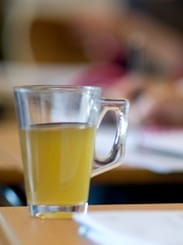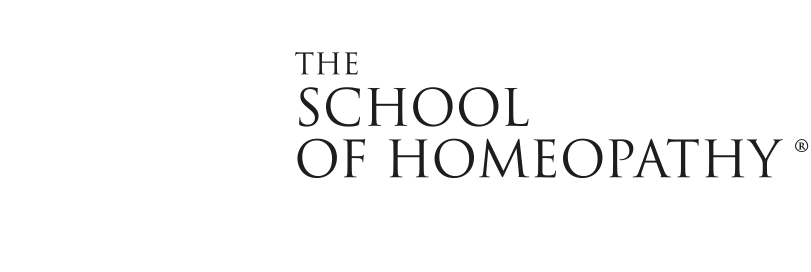


Homeopathy
Higher Diploma (Part 2)
Course Content
Looking at the plant and animal kingdom; the characteristics of those kingdoms to human behaviour; using the tools in homeopathy including Mappa Mundi and rubrics; how to manage difficult cases and overcome certain challenges; looking at research in homeopathy and the issues it faces; until arriving at the final unit of studying aspects of setting up a business and taking flight into your new profession.
Remedies Studied
Ambra Grisea, Cantharis, Corvus Corvus, Loganaceae Family.
Cases Studied
Sylvia – assignment case
Sebastian (Sore Tongue) – assignment case
Flossie – analysis case
Laura (Locked Joints) – analysis case
Anxiety – example case
Annabel (Arum T) – example case
Vince (Verat Album) – example case
Esther (Eating Problem) – assignment case
Tamara – assignment case
Silvia – analysis case
Sebastian (Sore Tongue) – analysis case
Chris (Crayfish) – example case
Debbie (Lac Delphinium) – example case
Elizabeth (Elaps) – example case
Fiona (Falcon) – example case
Peter (Epilepsy) – assignment case
Esther (Eating Problem) – analysis case
Suzanne – example case
Tom (Tachypnea) – example case
Tamara – analysis case
Indra – assignment case
Rachel (Rosacea) – assignment case
Mr DD 3rd Casetaking – example case
Peter (Epilepsy) – analysis case
Richard – example case
Indra – analysis case
Rachel (Rosacea) – example case
Lisa – assignment case
James (Young) – assignment case
Norman – example case
Rachel (Rosacea) – example case
Paul – example case
Full detail of each month is given below, with the aims and learning outcomes
4-1 September : Plants
Aims
This month aims to familiarise you with an in-depth study of remedies from the plant kingdom in homeopathy. You will explore plant classification and the different plant families, looking at how plant adaptations can relate to their signature, and how the vital sensation can be perceived in members of the same botanical plant family. You will also look at plants in relation to the Sensation Method and miasmatic theory and how this method can be used to make remedy selection easier. You will also be introduced into how to be a proving supervisor and the importance of maintaining a good relationship with your prover. Finally, you will evaluate a supervision session and look into the role of a proving supervisor, to enhance your own supervisory skill.
Learning Outcomes
At the end of this month you will be able to:
- Describe the differences between plants and the other kingdoms
- Explain how the evolution of plants relates to survival
- Determine which human characteristics can be related to need of a remedy from the plant kingdom
- Describe the vital sensation of ten plant families
- Show how to use the repertory in choosing between plant families
- Critically evaluate the role of a proving supervisor
- Critically evaluate and discuss pros and cons of clinical supervision
- Supervise your allocated prover so they accurately record their proving experience
4-2 October : Physicals in Casework
Aims
This month aims to evaluate the relevance of physical symptoms and pathology in helping to analyse casework. You will explore what differentiates ‘useful’ from ‘useless’ physical symptoms and to question patients to elicit useful physical symptoms. You will also learn how to evaluate the usefulness of symptoms against known criteria, such as hierarchies within bodily systems, Mappa Mundi, CLAMS & SRP etc. You will also evaluate how presenting physical symptoms can be amplified to reveal the vital sensation, image and signature. You will also continue your study of the plant kingdom materia medica by comparing the vital sensation of remedies within the same botanical family. Further, you will continue to supervise your prover.
Learning Outcomes
At the end of this month you will be able to:
- Discuss the relevance of physical symptoms and pathology to casework
- Explain the differences between useful and useless physical symptoms
- Evaluate the usefulness of symptoms against known homeopathic criteria
- Critically evaluate how presenting physical symptoms can be amplified to reveal the vital sensation, image and signature
- Sketch a homeopathic remedy on the Mappa Mundi
- Compare and contrast the vital sensation of a remedy in relation to its botanical family
- Supervise your allocated prover so they accurately record their proving experience
4-3 November : Animals
Aims
This month aims to familiarise you with the an depth study of the animal kingdom in homeopathy. You will explore the use of zoological classifications in recognising characteristics of a remedy or groups of remedies from this kingdom. You will study how to relate this to human characteristics and homeopathic prescribing. You will also continue in your role as proving supervisor and help your prover accurately record their proving experience. In addition, you will continue with the account of a clinical supervision session.
Learning Outcomes
At the end of this month you will be able to:
- Outline characteristics of the animal kingdom in relation to homeopathy
- Identify words and phrases belonging to animal classifications
- Determine which human characteristics can be related to the animal kingdom
- Supervise your allocated prover so they accurately record their proving experience
4-4 December : Proving
Aims
This month aims to bring the proving experience to a close. You will finalise your proving supervision role, working with your prover to ensure they accurately complete their proving diary. You will also record your experience of the proving and write a proving overview, taking into account how the proving has affected you. You will also continue with your studies of the animal kingdom with further study of a particular group or family of animals and discussion of the differences between the remedies and how their characteristics are reflected. Finally, you will begin preparation for your clinical portfolio by submitting two cases from clinical supervision in the required format.
Learning Outcomes
At the end of this month you will be able to:
- Supervise your prover so they accurately record their proving experience
- Critically review how the proving has affected you and write a proving overview
- Define characteristics of a group of homeopathic remedies in the animal kingdom of homeopathy
- Critically review two cases as required for the clinical portfolio
- Critically map two cases against core criteria, national occupation standards (NOS) and The Society of Homeopath’s Code of Ethics and Practice
4-5 January : Remedy Reactions
Aims
This month aims to get you to draw on personal prescribing experience, to critically review the various aspects of remedy reaction. You will draw from your own case work from your clinical practice under supervision and give examples of remedy reactions that were contrary to your expectations and what case management strategies you employed to deal with them. You will also continue with your analysis of the proving.
Learning Outcomes
At the end of this month you will be able to:
- Outline possible reactions to a remedy
- Discuss how to handle an unexpected reaction to a remedy
- Critically review unexpected remedy reactions in your own practice
- Critically review how the proving has affected you and write a proving overview
4-6 February : Integrated Approach
Aims
This month aims to consolidate your knowledge and ensure you have a firm understanding of the many tools used in modern homeopathy. You will study how to effectively use these tools in your analysis of cases, so as to arrive at a remedy which best matches the patient. Some of the tools which will be discussed include time-lines, miasms, direction of cure, rubrics, gestures, the Mappa Mundi, vital sensation, levels and kingdoms. You will also critically review the term ‘unprejudiced observation’, and take a look at what this means to you now and how you see it differently from when it was first studied in year one. Finally, you will present to class, for peer review, your work in communicating your practice, including logo designs, posters, website and handling patients.
Learning Outcomes
At the end of this month you will be able to:
- Describe six of the main tools used for analysing a case
- Compare and contrast the pros and cons of the six main analysis tools
- Critically analyse the term ‘unprejudiced observation’
- Peer review your practice communication
4-7 March : Case Management
Aims
This month aims to teach you about the difficulties to be found in case management and ensure you have the strategies for overcoming these. There are many factors within a practice that will create obstacles to cure and you will learn how to overcome them. You will be taught the ingredients for a well-run practice, including record keeping and how to treat children as well as different situations that may present particular problems, such as over-sensitive patients. You will then work on improving the communication of your practice following the discussion in class last month.
Learning Outcomes
At the end of this month you will be able to:
- Identify problems that could arise following a homeopathic prescription and explain how you would handle them
- Identify problems that could arise when dealing with patients and explain how you would handle them
- State what information should be kept on a patient registration form
- Explain the importance of patient confidentiality and identify the circumstances in which you may have to disclose information
- Improve the communication of your practice
4-8 April : Portfolio
Aims
This month focuses on your clinical portfolio. You will review you case work under supervision and map it against the School’s core criteria and the National Occupation Standards for Homeopathy. You will also review The Society of Homeopath’s Code of Ethics and Practice. You will present this work in your clinical portfolio to demonstrate your fitness to practice. You will also continue with your practice communication, making sure all improvements have been completed, ready for submission.
Learning Outcomes
At the end of this month you will be able to:
- Critically review cases as required for the clinical portfolio
- Critically map cases against core criteria, National Occupation Standards (NOS) and The Society of Homeopath’s Code of Ethics and Practice
- Demonstrate fitness to practice through your clinical portfolio
- Critically review your practice communication
4-9 May : Portfolio
Aims
This month lets you make further case submissions to your clinical portfolio that you handed in last month. If you have ongoing casework that you have not yet included in your portfolio then you can prepare it for inclusion during the May weekend. You will continue with the review of your casework under supervision and continue mapping it against the School’s core criteria and the National Occupation Standards for Homeopathy. Any additional case work can then be added to your portfolio which you submitted last month.
Learning Outcomes
At the end of this month you will be able to:
- Critically map cases against core criteria, National Occupation Standards (NOS) and The Society of Homeopath’s Code of Ethics and Practice
- Demonstrate fitness to practice through your clinical portfolio
4-10 June : Graduation
Aims
This month aims to review your achievements over the last four years of the course. You will have class discussions with the Clinical Supervisor and Course Leader. You will also have your graduation of academic achievement.
.jpg)
The 4yr study programme offers a holistic approach to understanding homeopathy - different perspectives from the variety of teachers, experiential understanding of the mechanics and learning the nuts and bolts of many remedies! It has been an honour to be part of the schools learning community
Jeremy Mitchard, Graduate















